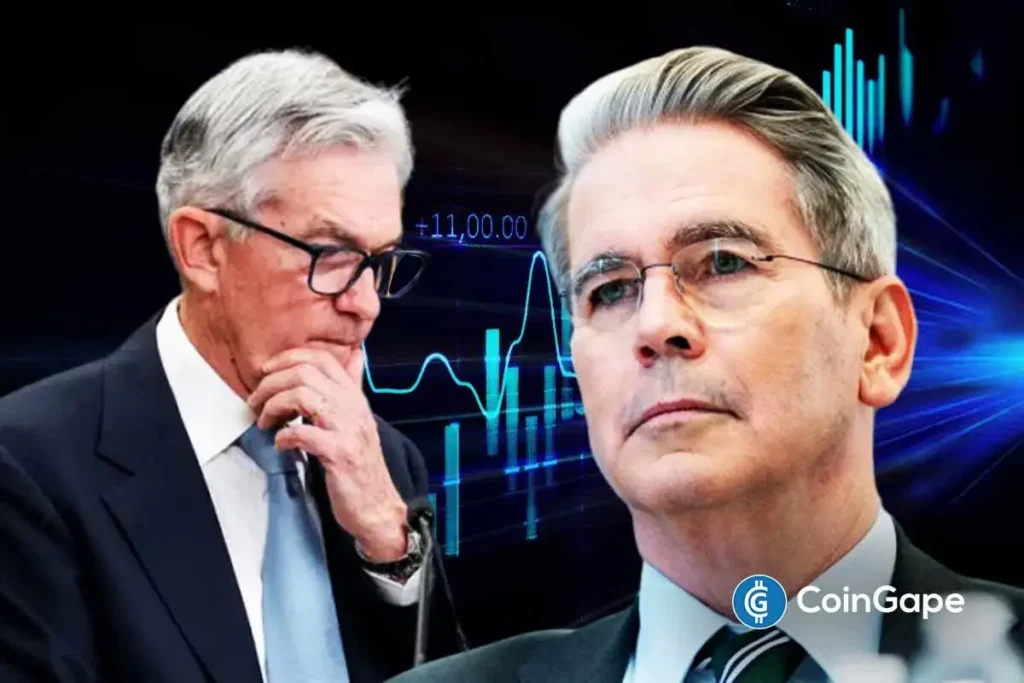The Future of the Federal Reserve: Jerome Powell’s Replacement and Interest Rate Decisions
As discussions surrounding U.S. monetary policy intensify, Jerome Powell’s tenure as Federal Reserve Chair seems to be nearing an end. U.S. Treasury Secretary Scott Bessent confirmed in a recent Bloomberg interview that the Trump administration is actively seeking a successor for Powell. With the Fed Chair’s term ending in May 2026, the search for his replacement is becoming increasingly urgent, and Bessent has emerged as a strong candidate.
Bessent as a Contender for Fed Chair
Scott Bessent has openly acknowledged the administration’s plans to identify a suitable candidate to lead the Federal Reserve. Although he has been mentioned as a potential replacement, he clarified that he is not actively pursuing the position. Bessent expressed his contentment in his current role, asserting, "I have the best job in DC." Nonetheless, he indicated a willingness to succeed Powell if President Trump decides to appoint him. The administration’s timeline suggests an announcement could come as early as October, amidst speculation regarding other candidates like Kevin Hassett, Christopher Waller, and Kevin Warsh.
Pressure Mounts on Jerome Powell
As the search for a new Fed Chair unfolds, pressure is mounting on Jerome Powell regarding interest rate policies. Bessent has joined a chorus of voices advocating for a reduction in interest rates, citing decreasing inflation metrics and the economic impact of tariffs as compelling reasons for action. President Trump has also weighed in heavily on this matter, calling for a substantial reduction of 1% in interest rates. He has gone so far as to directly communicate his concerns to Powell, arguing that the Fed’s current stance is costing the U.S. economy billions.
Anticipated Rate Cuts by the Federal Reserve
The challenges facing Powell are resulting in increased betting among traders for an interest rate cut during the upcoming July Fed meeting. This speculation is fueled by comments from Federal Reserve Governor Christopher Waller, who has suggested that cuts are on the horizon. With inflation trends seemingly favoring a reduction in rates, Powell is under mounting pressure not just from traders but from White House officials as well. The upcoming months will be crucial in determining how the Fed navigates these conflicts.
Implications for the U.S. Economy
The potential shift in leadership at the Federal Reserve could have far-reaching consequences for the U.S. economy. A dovish approach to monetary policy might stimulate consumer spending and investment, fostering economic growth in the face of global uncertainties. Conversely, if the Fed opts to maintain its current interest rate policies, the ramifications could result in slowed economic growth and further tension between the White House and the Federal Reserve. The administration’s move to seek a new Fed Chair reflects a broader strategy to ensure economic responsiveness amid fluctuating international markets.
The Future Landscape of U.S. Monetary Policy
As the Trump administration prepares to appoint a new Federal Reserve Chair, the implications for monetary policy and economic stability will be closely scrutinized by both domestic and international stakeholders. Investors, economists, and political analysts alike will be eager to see how this transition influences interest rates and economic growth. The upcoming decisions regarding Powell’s successor and the looming interest rate discussions will significantly impact the trajectory of the U.S. economy in the months ahead.
In conclusion, as the Trump administration looks to transition from Jerome Powell’s leadership at the Federal Reserve, ongoing discussions around interest rate policies suggest a pivotal moment for the U.S. economy. With Scott Bessent and other candidates vying for the role, the upcoming announcements will shape future monetary policy and have lasting implications for both domestic and global markets.


